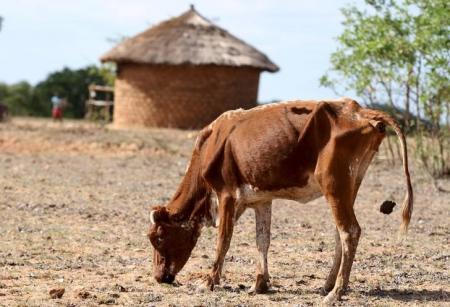
BY MUNYARADZI MADZOKERE
The Food and Agricultural Organisation of the United Nations has stepped up efforts to fight “hidden hunger” through bio-fortification of food.
The FAO, through Zimbabwe Livelihoods and Food Security Programme (LSFP), has been promoting production and consumption of bio-fortified products, such as Vitamin A orange Maize (VAM) and high iron and zinc bean varieties since 2016.
In Zimbabwe, official statistics show that nearly one in every five children under the age of five as well as women of childbearing age suffer from “hidden hunger”.
Hidden hunger is micronutrient deficiencies caused by inadequate intake of vitamins and minerals.
“Micronutrient deficiencies affect the health, well-being and productive potential of many people, particularly women and children in Zimbabwe and across the world,” FAO sub-regional coordinator for southern Africa and Zimbabwe representative, Alain Onibon, said on Wednesday during a biofortification learning event in Harare.
“Such a scenario should not be allowed to continue in the 21st century, given the great strides we have made in science, including crop breeding and other various ways of increasing agricultural production and productivity.
“It is high time bio-fortified crops are produced and consumed by the majority of Zimbabweans, to prevent and correct deficiencies of vitamin A, iron and zinc. This can only be possible through concerted and well-coordinated efforts under the leadership of the Government of Zimbabwe.”
- Chamisa under fire over US$120K donation
- Mavhunga puts DeMbare into Chibuku quarterfinals
- Pension funds bet on Cabora Bassa oilfields
- Councils defy govt fire tender directive
Keep Reading
In 2016, VAM and high iron and zinc beans were launched through the LFSP, marking the country’s first step to full scale production, distribution and consumption of bio-fortified crops.
This was achieved through partnerships with the Lands, Agriculture, Water, Climate and Rural Resettlement as well as Health and Child Care ministries, HarvestPlus and a consortia of non-governmental organisations.
Lands, Agriculture, Water, Climate and Rural Resettlement deputy minister Vengalis Haritatos said addressing malnutrition among women and children was a priority for the government.
“The government would like to urge seed companies, food processors, farmers and all key stakeholders in the agriculture sector to rally behind this important initiative and invest in the development and production of these nutritious crops,” he said.
The LFSP, funded by UKAid and managed by FAO and Palladium, aims to reduce poverty through increased incomes for communities in 12 target districts by addressing productivity constraints, market participation, access to finance and the supply and demand of nutritious foods including bio-fortfication.











